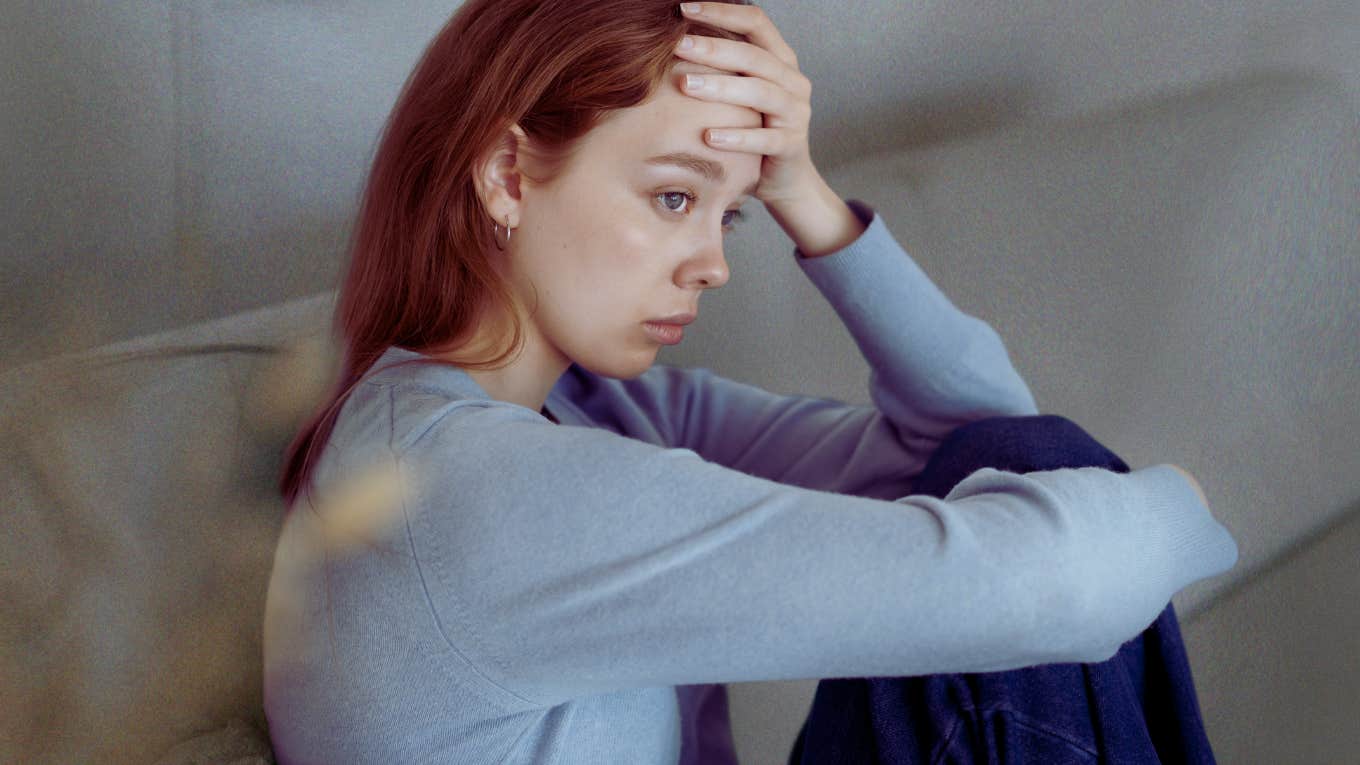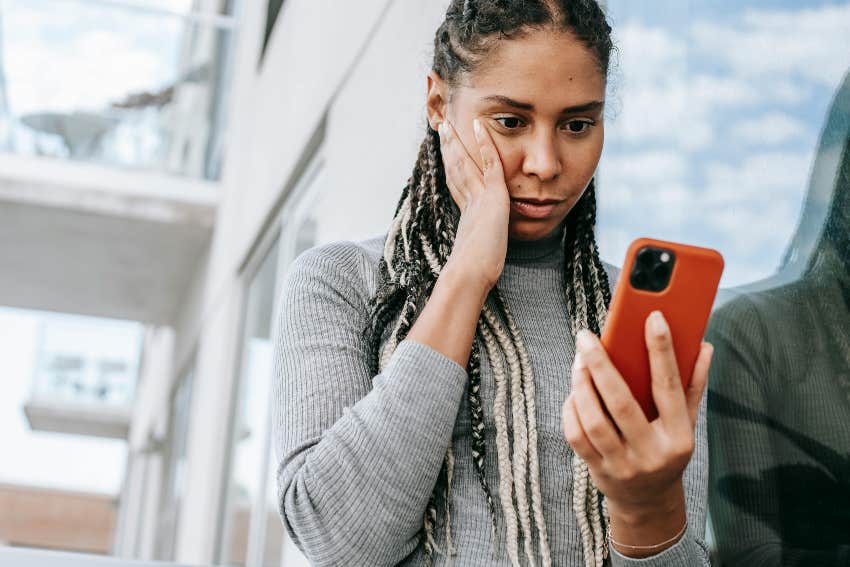6 Painfully Common Reasons Even The Strongest People Struggle With Depression & Anxiety
Have you been feeling sad for more than two weeks straight?
 Faalguni Mandal | Canva
Faalguni Mandal | Canva If you're suffering from overwhelming feelings of sadness, then likely, you've got a lot of questions about the emotions you're experiencing and how they're affecting your mental health:
"Why am I so sad?
"Am I depressed?"
"What's causing these feelings of depression and anxiety?"
"What can I do to feel better?"
Whether you are crying constantly or not, you know you don’t feel happy. Even “okay” feels like a stretch. You are tired, unmotivated, and lonely. You are sad.
Sometimes, sadness is just that: Sadness. And other times it is a sign of something more significant — something more clinical.
Sometimes, feeling sad is a sign of depression or anxiety. It can even be a combination of the two because extreme anxiety can wear you out and drain you to the point of depression.
Unfortunately, many people struggle with these emotions, yet they have no idea why they feel so sad or what causes depression and anxiety in the first place. Approximately 280 million people suffer from depression each year, according to research.
The reasons behind your feelings of sadness might not be immediately obvious; however, there are many common occurrences that can lead to this kind of melancholy and cause you to wonder if you will ever start to feel better and more like yourself again.
If you've been feeling low for a while now and have started asking yourself, "Why am I so sad?" consider these possible triggers.
Here are 6 painfully common reasons even the strongest people struggle with depression and anxiety:
1. You're going through a transition.
If uncomfortable feelings are relatively recent, some common reasons might include transitions and change. Just as many people have difficulty with seasonal change and adjustments (think back to school chaos, or winter dreariness) any change can really throw people out of whack.
Did you move? Did you start a new job? Is there a new roommate, or even a guest staying in the house? If the change has led to a feeling of stress or sadness, then getting to the "why" is easier.
2. You recently lost a loved one.
Another trigger can be a recent death. Interestingly, even if the current loss did not feel all that awful, it can remind us of other losses.
A grandmother who passes away after years of a devastating illness can feel relieving, but yet, you feel raw from grief, mourning your earlier memories.
A friend’s parent passing can have you missing your own. Additionally, grief does not have to come from death. A breakup can send you spiraling into despair and worries about being alone before the “what next” mentality can set in.
3. You're tired.
There is a hierarchy to your needs; specifically, three necessities in order for you to feel mentally strong:
- Sleep
- Nutrition
- Exercise
When you aren’t sleeping, eating right, or getting enough exercise, your coping strategies are tired, too. As a result, you'll feel tired, anxious, and in some cases, even depressed.
4. You're comparing yourself to other.
The trouble with social media is you find yourself comparing your innermost insecurities to everyone else’s public personas. This can wear you down.
 Pexels / Alex Green
Pexels / Alex Green
Significant time spent comparing yourself to others can lead to very real feelings of anxiety, not being "good enough" and sadness.
5. You are lonely.
Some of the more common clinical causes of sadness, depression, or anxiety often are related to feelings of rejection or abandonment.
While you may not be experiencing straight-up direct rejections or abandonment currently, the worry that one is not considered, thought of, or prioritized can send people spiraling into an ocean of discomfort.
Therapy can help you figure out the patterns and the roots of these fears to find not only closure, but hope.
6. You have unresolved trauma.
What you told yourself you already dealt with is back. Sometimes it's something traumatic from your childhood, a suicide, a sudden death, divorce, or something else that caused you pain and shame.
Why do we hold onto such horrible things? According to research, our brain represses traumatic memories as a way to protect us, but if these things go unresolved, they will resurface.
Whatever it was, it's back and you are stuck searching for meaning and closure.
It is hard to believe you will feel better.
If you had difficulties in your past, why would you trust things would be different? If your history paints a picture of inconsistency and unwelcome surprises, why would you trust that something good can last?
A good therapist will help you find out why you feel depressed and anxious and work with you to help you address your feelings of sadness — so you can start feeling better.
If you or somebody that you know is experiencing a mental health crisis, there is a way to get help. Call SAMHSA’s National Helpline at 1-800-662-HELP (4357) or text "HELLO" to 741741 to be connected with the Crisis Text Line.
Lynn Zakeri is a therapist and social worker. She has been featured in WGN 9, The Wall Street Journal, the Chicago Tribune, the Washington Post, and more.

